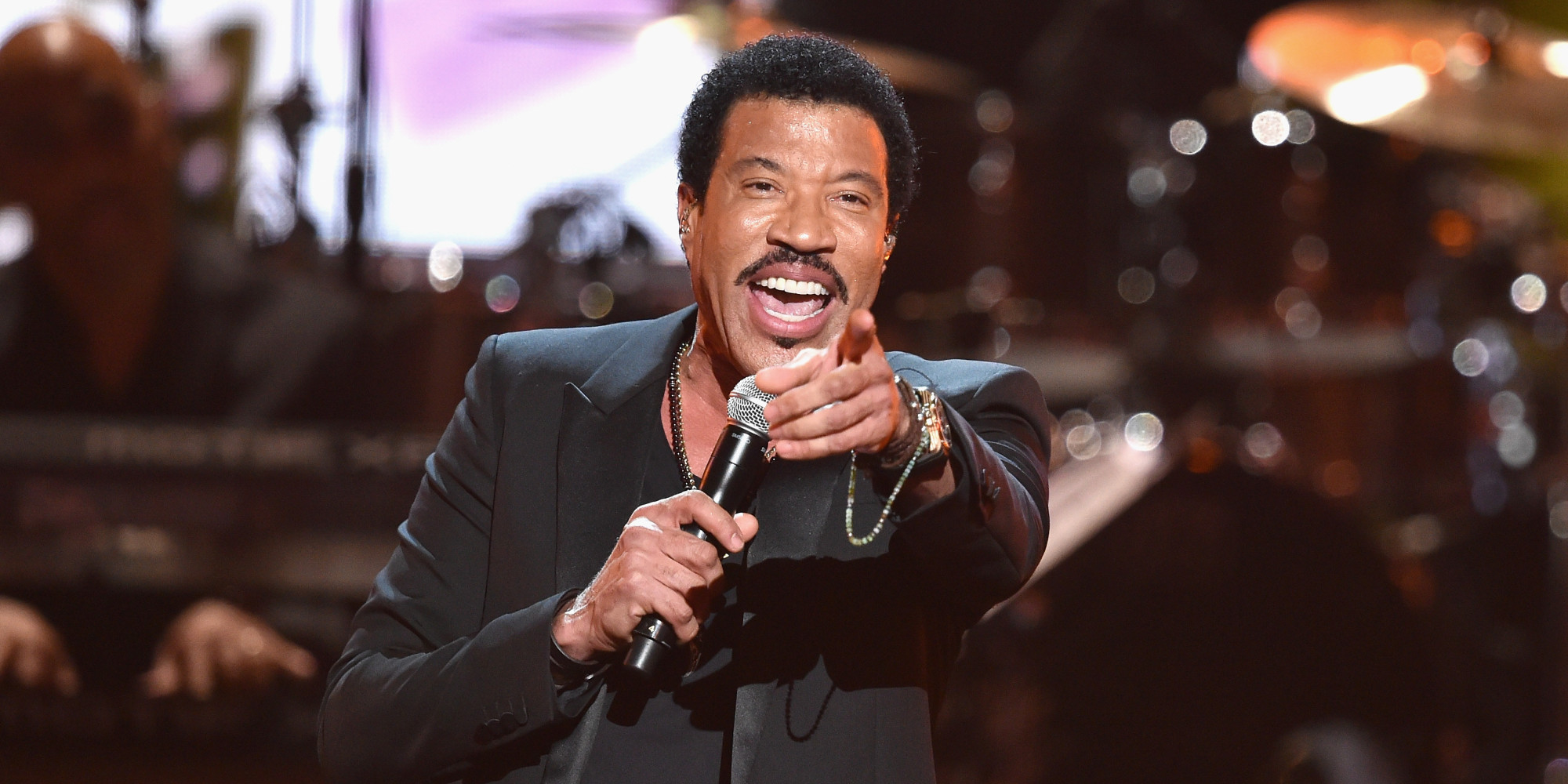Right now, Lionel Richie (shown here) seems to be in his happy place.
Then again, he sort of lives there; that’s what his adoptive daughter keeps telling people. “Nicole always says I’m the happiest guy in the world,” he said, without disputing it. And now he has extra reasons for joy, with:
— The finals for “American Idol,” which he judges alongside Katy Perry and Luke Bryan. At 8 p.m. Sunday (May 15) on ABC, the final five perform; a week later, the show has its 20th winner.
— The Gershwin Prize for Popular Song, at 9 p.m. Tuesday (May 17) on PBS. He’s the 13th annual winner, putting him alongside such people as Paul McCartney, Billy Joel, Gloria Estefan, Garth Brooks and two of his old Motown colleagues, Stevie Wonder and Smokey Robinson.
“I didn’t put the whole puzzle together until I … joined Motown,” said Richie, 72. “It gave me accesss to Stevie and to Marvin (Gaye) and Smokey.”
From there, he soared. “His Tuskegee-to-Hollywood career spans … more than 125 million albums sold and an incredible streak of 11 straight years with No. 1 hits,” said Carla Hayden, the Librarian of Congress, whose organization created the Gershwin Prize.
That first part – Tuskegee, Ala. — was crucial, Richie said. In two Television Critics Association conferences (for “Idol” and for the PBS special), he traced what he considers a blessed life.
Tuskegee University was created (as Tuskegee Normal School for Colored Teachers) in 1881 by a former slave and a former slaveholder; for its first three decades, it was run by Booker. T. Washington. Now with 2,900 students, it has produced college presidents, professors, generals, a Ghana prime minister, a New Orleans mayor and such media stars as Keenen Ivory Wayans, Tom Joyner, Ralph Ellison, Betty Shabazz … and Richie, who spent much of his youth there.
The son of a teacher and an Army systems analyst, he grew up on the Tuskegee campus. The family moved away to Joliet, Ill., for a while, but he returned to the university on a tennis scholarship.
“I had Black history lessons every day,” he said, “because I was living in it …. We were raised by the Tuskegee Airmen on that campus, not knowing how famous they were.”
His friend’s dad was the pilot who had taken Eleanor Roosevelt on an historic flight. History surrounded him … and still does. He lives in and is restoring a home that has its centennial next year; “on the deed of the house is Booker T. Washington’s sister.”
The “Tuskegee bubble” shielded kids, he said. Only later did he realize why the family’s drives from Tuskegee to Detroit only included one stop, in Nashville. “There was no place else you could stay …. I used to think Dad just loved driving straight through.”
He eventually got involved in struggles to integrate the surrounding area. He was also a student – but one who tended to daydream, he said – and a musician.
“I was an economics major (and) accounting minor, which was going to be the boring parts of my life.” But he met guys who were starting a band. “I was not the lead singer; I was the saxophone holder.”
He was also a songwriter. At Motown, producer James Carmichael nudged him toward straightforward emotions. “I found that the simplest parts of life are the parts that people gravitate to.”
Richie wrote hits for the Commodores and for his solo career, as well as for movies, Kenny Rogers and more. He also linked with another Motown alumnus, Michael Jackson, to make history,
They “wrote ‘We Are the World,’ one of the biggest singles in recording history, selling more than 20 million copies and raising more than $63 million for famine relief in northeast Africa,” Hayden said.
Yes, Richie sings that at the end of the Gershwin Prize special. He’s in his happy place, as usual.
